Did you know that there are certain barley allergy foods to avoid? If you have a barley allergy, you may be wondering what those foods may be. While some people with this allergy can eat foods that contain trace amounts of barley, others must avoid it completely. Here are some common foods that may contain barley or other ingredients derived from barley: beer, bread, cereal, condiments, pasta dishes, and snacks.
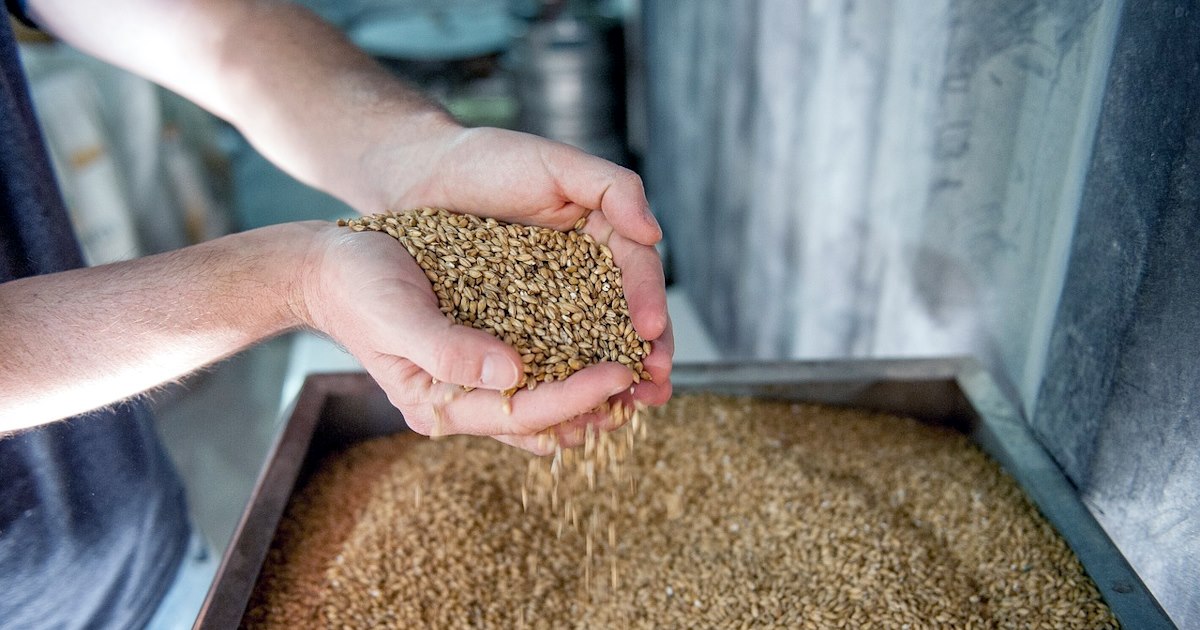
Table of Contents
Is barley an allergen?
Yes, barley can be an allergy-inducing grain. An allergy to barley causes an immune response in the body which releases histamine, causing allergy symptoms. Barley allergy symptoms will vary from person to person, but most individuals experience itchy eyes, nose, throat, and abdominal discomfort.
Plants Related to Barley
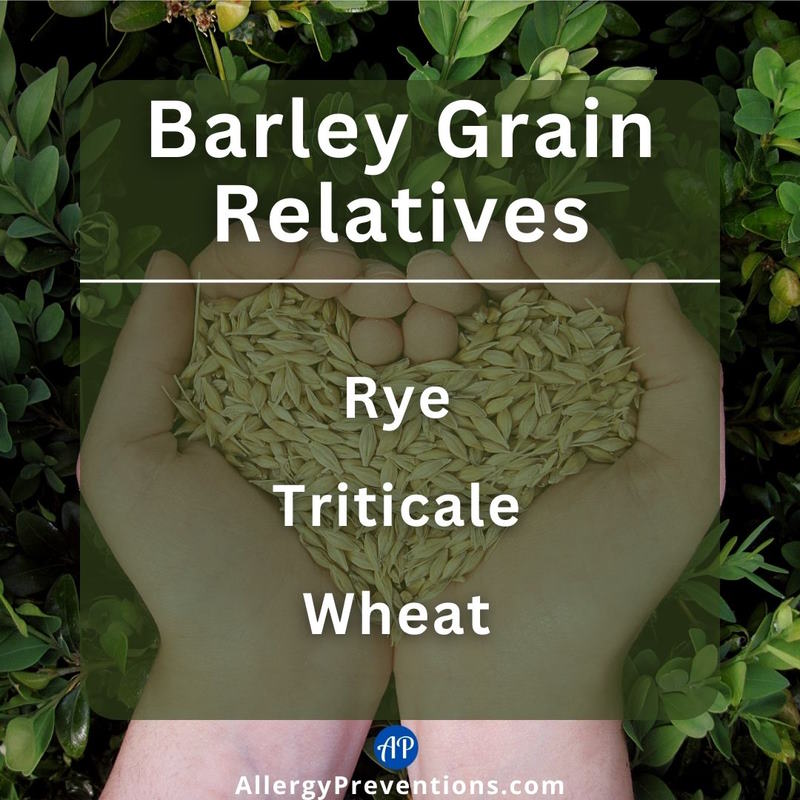
Barley is a plant in the Triticeae grass tribe, which is part of the Poaceae grass family. These plants may also give you an allergic reaction if you suffer from a barley allergy. According to agriculture scientists, the following plants and grains are related to barley:
- Rye
- Triticale
- Wheat
List of Barley Allergy Foods to Avoid
Barley is an incredibly versatile grain that can be used in many different ways in the kitchen. Many foods we eat every day contain barley or derivatives of it. if you have a food allergy to barley, be sure to check your food labels and avoid “barley” or “malt” ingredients. Here are the barley allergy foods to avoid.
Baby Foods

Barley is sometimes included in baby foods due to its nutritional advantages, gentle taste, and smooth texture. However, for individuals with a barley allergy, it’s crucial to carefully read food labels to ensure that there are no barley-based ingredients or derivatives present.
Barley Breads
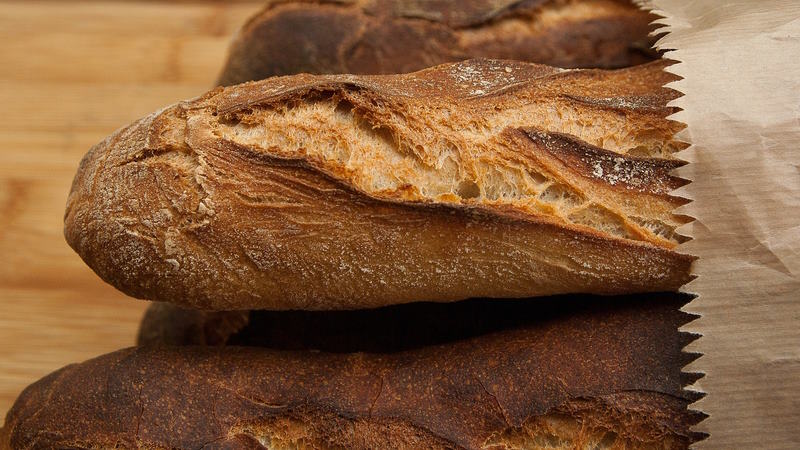
Barley is used in bread because it helps make the bread soft, fluffy, and moist. It also adds a nutty flavor to the bread. The following types of bread should be avoided with a barley allergy:
- Barley bread
- Caraway seed and malt loaf
- Dark rye malt bread
- Guinness® beer bread
- Light rye malt bread
- Malt loaf
- Malt scotch pie pastry
- Millet and barley sourdough
- Spelt and barley bread
- White malt bread
Beers

Barley is a key ingredient in beer and has been used for centuries to make the beverage. It provides both flavor and body to beers of all types, from light lagers to dark stouts. The following beers typically contain barley:
- Altbier
- American Wheat Beer
- Bock Beer
- Brown Ale
- Dunkel
- Indian Pale Ale (IPA)
- Lager
- Maibock
- Marzen
- Porter
- Red Ale
- Stout
Cereals
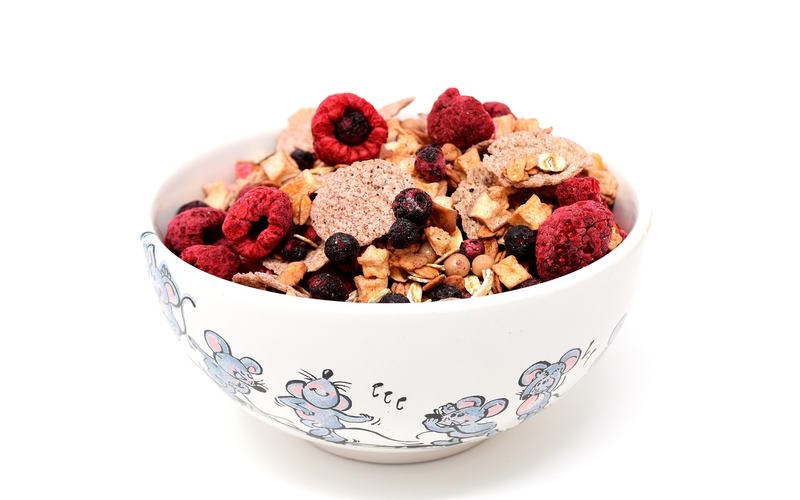
If you have a barley allergy, it is recommended to avoid the following cereals due to their barley ingredients:
- Arrowhead Mills™ Puffed Barley Cereal
- Bob’s Red Mill® 7 Grain hot cereal
- Kellogg’s® All-Bran® Original Cereal
- Nature’s Path Organic® Heritage Flakes® Cereal
- Nestle® Fitness Barley Flakes
- Post® Grape-Nuts® Cereal
- Quaker® Quick Pearled Barley
- Special K® Cereal, Touch of Cinnamon
These cereals are what I have found from my research and are not an all-inclusive list. This list provides you with an idea of common cereals that contain barley. Please read all food labels for barley and barley derivative ingredients.
Certain Condiments

Malt vinegar and Worcestershire sauce are one of the most common barley allergy foods to avoid. Both of these zesty flavor enhancers contain large amounts of barley or malt. These condiments are used in many different sauces and salad dressings.
Energy Bars
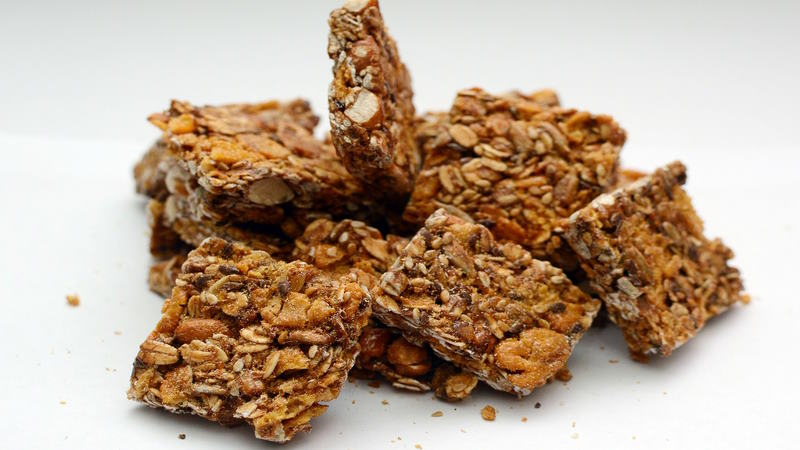
Barley is a nutritious grain that contains complex carbohydrates, dietary fiber, vitamins, and minerals. It provides a slow and sustained release of energy due to its complex carbohydrate content. This makes it a suitable ingredient for energy bars, which are designed to provide a quick and convenient source of energy, especially during physical activities or as a snack between meals.
In energy bars, barley might be included in various forms such as whole barley flakes, barley flour, or barley-based sweeteners. Its presence contributes to the overall nutrient content of the bar and helps to provide a balanced source of energy.
Liquors

Generally speaking, barley is one of the most popular grains in liquor production as it produces distinctive flavor notes along with the desired potency. Here are the types of liquors that contain barley or malt:
- Bourbon whiskey
- Irish whiskey
- Malt liquor
- Rye whiskey
- Scotch whisky
- Vodka (in some cases)
- Whiskey
Pasta Dishes Containing Barley
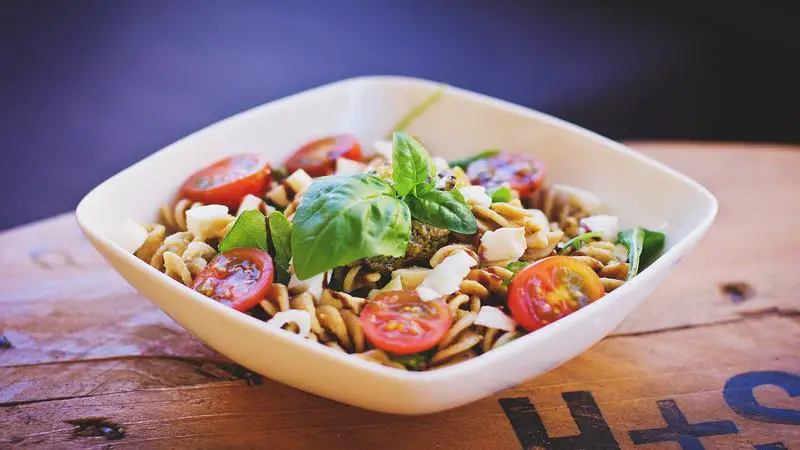
Barley is an ancient grain that has been used in pasta for centuries. It’s nutritious, tasty, and easy to cook with. Unfortunately, if you are looking to steer clear from barely, you should also avoid these pasta dishes, or remove the barley from the recipe:
- Barley risotto
- Barley and roasted garlic soup
- Gnocchi di orzo all’arancia (barley orange gnocchi)
- Penne barley-stuffed mushrooms
- Spicy sausage, lentil & barley stew
Plant-Based Meat Substitutes
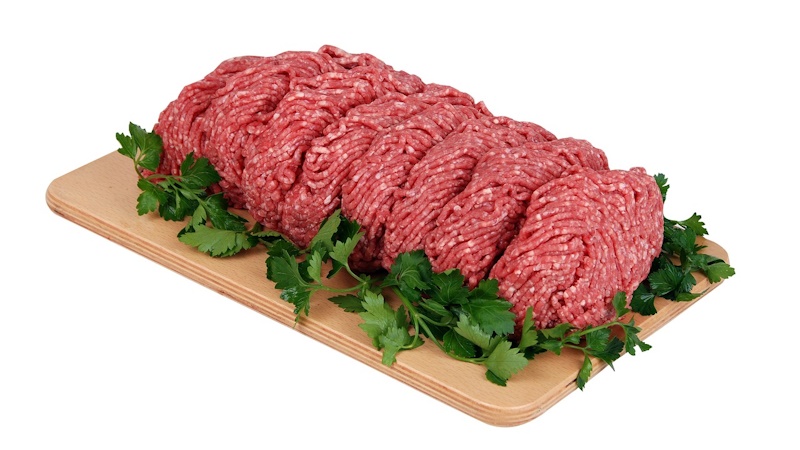
Barley possesses an exceptional, chewy texture that closely resembles the mouthfeel of meat. When incorporated into plant-based meat alternatives, barley introduces a gratifying bite and sensation, enhancing the product’s appeal to individuals aiming for a meat-replicating encounter.
Furthermore, barley boasts a higher protein content compared to many other grains, rendering it well-suited for crafting meat substitutes. However, it’s important to note that individuals with a barley allergy should be cautious due to its potential allergenic properties.
Processed Meats

Barley-derived components may be used in processed meats to improve flavor, color, texture, and shelf life, as well as to provide potential nutritional benefits. When avoiding barley, ensure you are reading ingredient labels or consulting with manufacturers about your dietary restrictions.
Snacks Containing Barley

Barley and malt give snacks some unique and tasty flavor profiles, here are some examples of snacks that contain barley or malt:
- Barley-based granola bars
- Barley flour crackers
- Barley oat bites
- Chocolate-covered pretzels with malted milk
- Honey nut toffee popcorn with malt
- Roasted barley tea snack mix
- Whole grain rye bread with malted barley
Soup Mixes and Broths
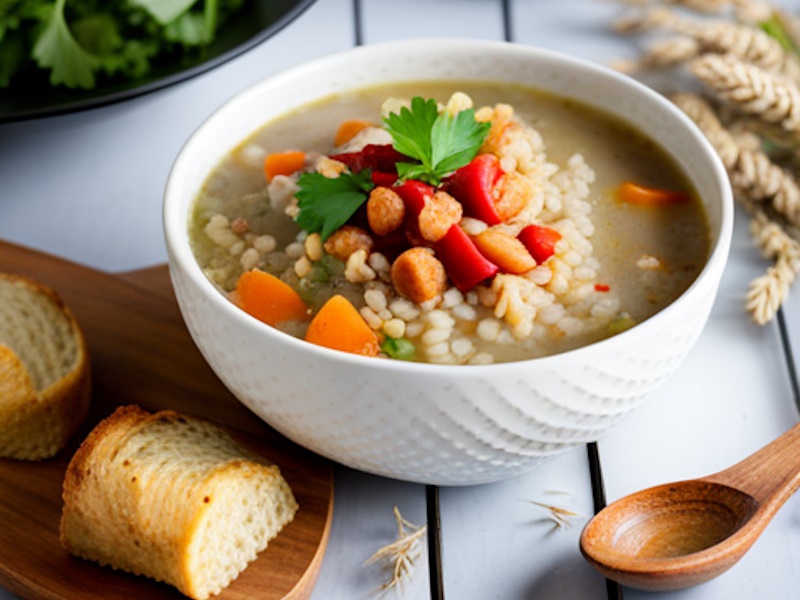
Barley has a unique texture, mild flavor, nutritional benefits, and the ability to enhance the overall taste and consistency of soups, which makes it a popular and valuable ingredient in many soup recipes.
Alternative Ingredients That Can Be Used in Place of Barley

If you’re looking for a substitute for barley, there are many tasty and versatile alternatives on the market. Here are ingredients that can be used in place of barley:
- Amaranth: A small grain with a nutty taste that can be cooked similarly to rice.
- Brown Rice: A nutritious whole grain with a slightly nutty taste and a chewy texture.
- Buckwheat: Despite its name, buckwheat is not related to wheat. It has a nutty flavor and can be used in a variety of dishes.
- Bulgur: A quick-cooking wheat product that’s similar in texture to barley.
- Couscous: A small, granular pasta often used in Mediterranean dishes.
- Quinoa: A protein-rich grain with a mild flavor and slightly nutty taste.
- Farro: A hearty and chewy grain that adds texture and nuttiness to dishes.
- Freekeh: An ancient grain with a smoky flavor and chewy texture.
- Lentils: For soups and stews, lentils can add a hearty texture and protein content.
- Millet: A gluten-free grain with a mild flavor and a slightly crunchy texture.
- Oats: While not a direct substitute, oats can provide a similar texture and nutritional profile in certain dishes.
- Rice: Depending on the recipe, rice can often be used as a neutral base in place of barley.
- Sorghum: A gluten-free grain with a mild flavor that can be used in both sweet and savory dishes.
- Spelt: An ancient grain similar to wheat but with a nuttier flavor.
- Wild Rice: Despite its name, wild rice is a type of aquatic grass with a unique texture and earthy flavor.
When substituting for barley in recipes, consider the texture, flavor, and cooking time of the substitute to ensure it aligns with the intended dish.
FAQs Related to Barley Allergies
Barley allergies are a common concern for individuals with adverse reactions to this grain. Here are answers to some frequently asked questions about barley allergies:
What are foods to avoid with a barley allergy?
The main foods to avoid with a barley allergy are certain breads, cereals, soups, and some processed foods. Read food labels and avoid ingredients like barley flour, barley malt, barley extract, and barley-based additives.
Can you be allergic to barley but not wheat?
Yes, it is possible to be allergic to barley while not having an allergy to wheat. Barley and wheat are distinct grains, and an allergy to one does not necessarily mean an allergy to the other. It is important to note that barley and wheat both contain gluten.
Can you be sensitive to barley?
Yes, individuals can experience sensitivity to barley. This sensitivity often leads to gastrointestinal discomfort, including bloating, gas, and other digestive problems. It’s important to note that barley sensitivity does not trigger an immune system response, unlike a barley allergy, which involves the immune system reacting to specific substances in barley.
Is barley an inflammatory grain?
Yes, barley can be considered an inflammatory grain for some individuals because of its gluten content. Gluten is a protein that can trigger inflammation in people with conditions such as celiac disease or non-celiac gluten sensitivity.
Is barley good for everyone?
Barley can be a nutritious addition to many people’s diets, but whether it is “good” for everyone depends on individual factors such as dietary preferences, health conditions, and sensitivities. For example, it is typically advised that people with gluten sensitivity, FODMAP sensitivity, or celiac disease avoid barley.
What has been your barley allergy journey?
Please share with me your journey, insights, and strategies for managing this allergy. I would love to gather experiences to share with other barley allergy sufferers. Send me an email at Chris@allergypreventions.com. Together, we can create a safer, more informed environment for everyone.
